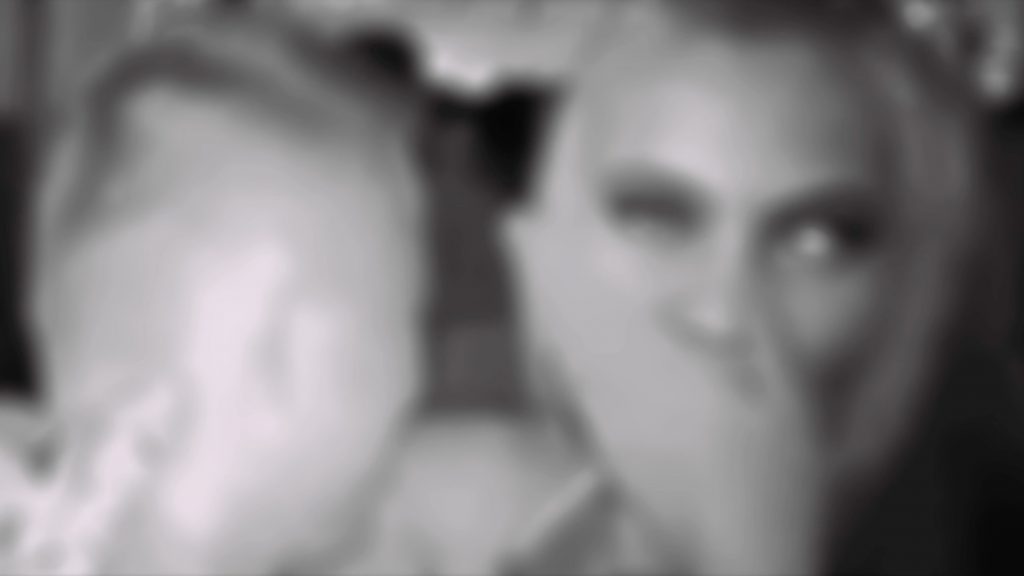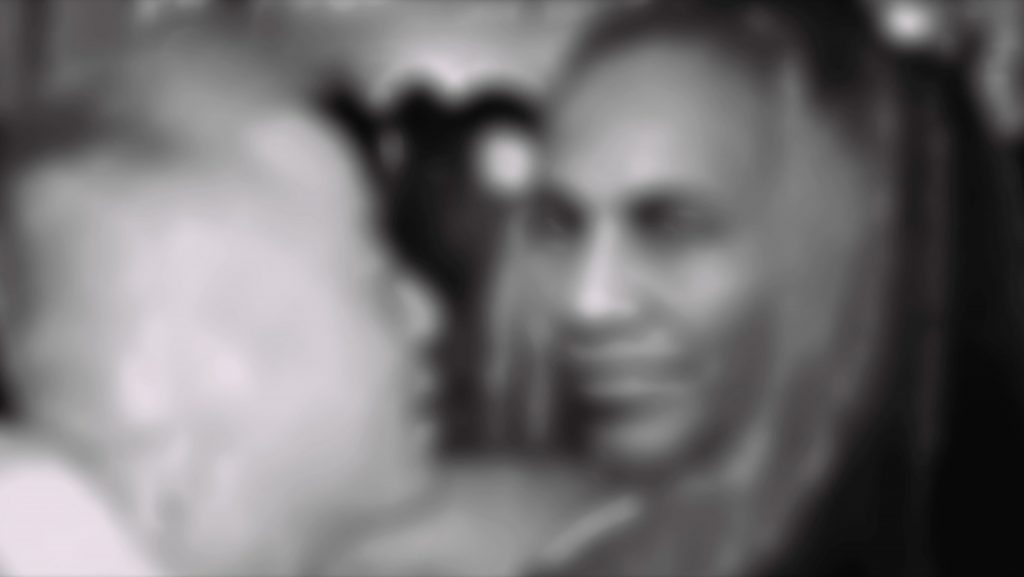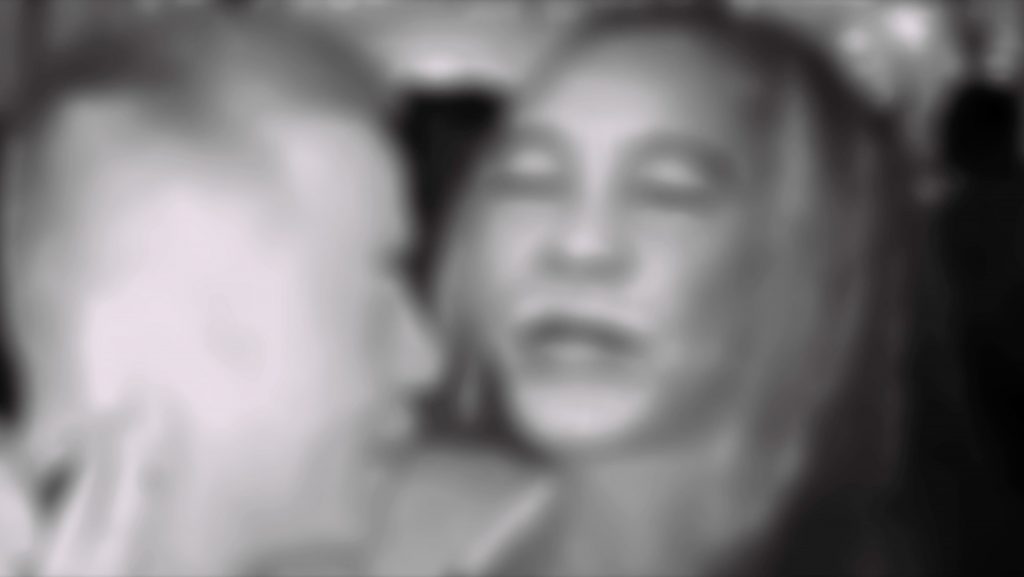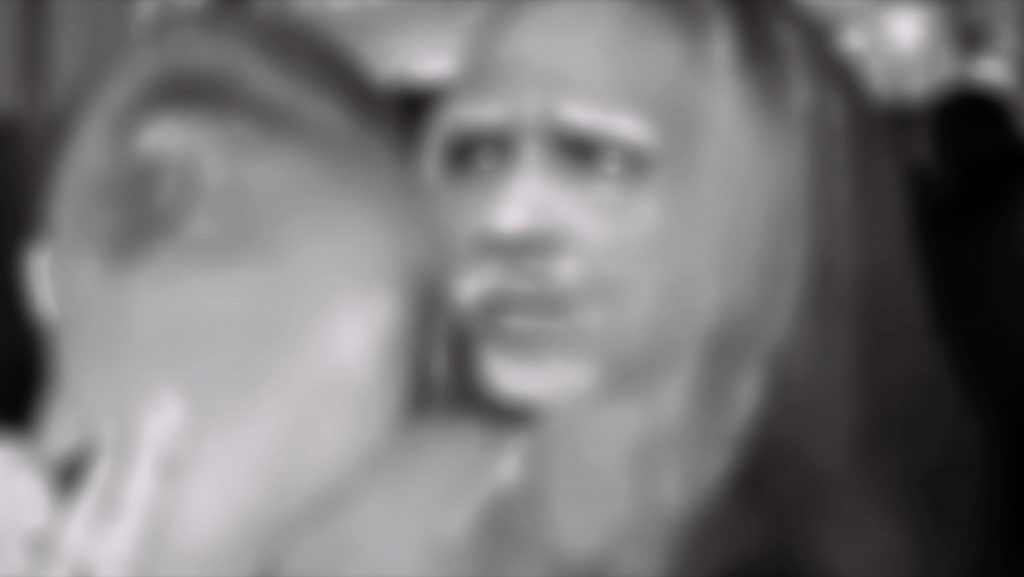
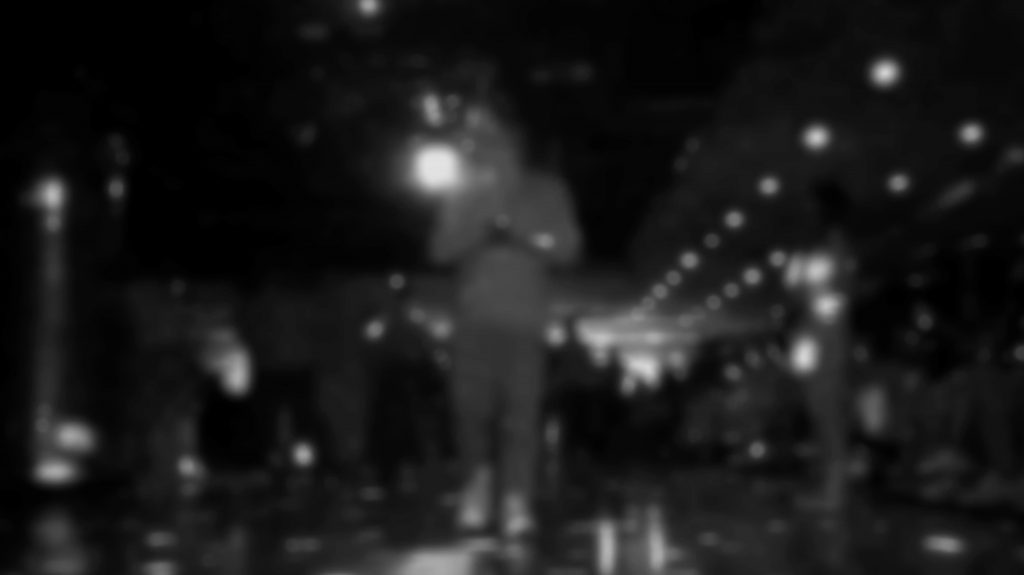
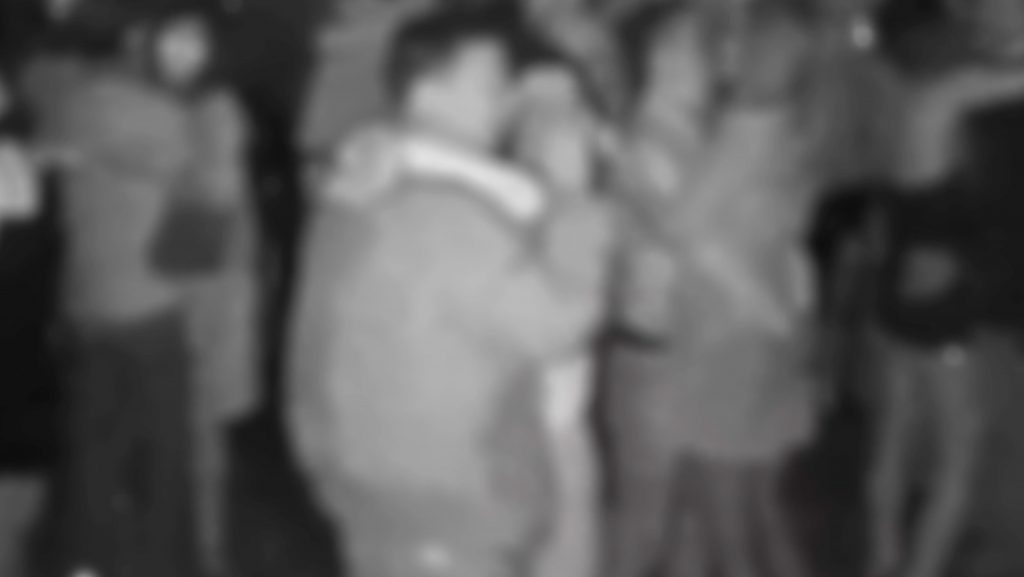
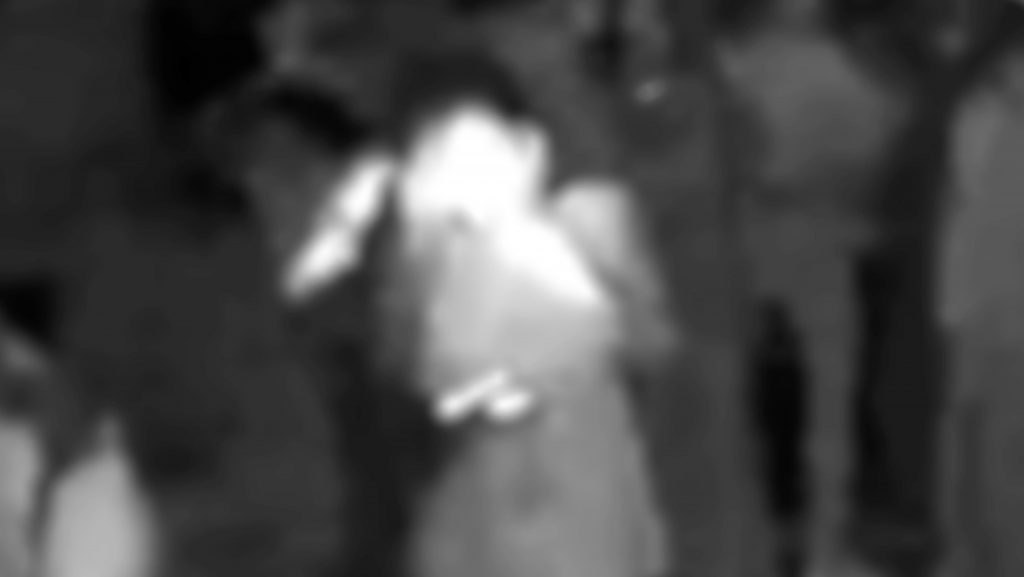
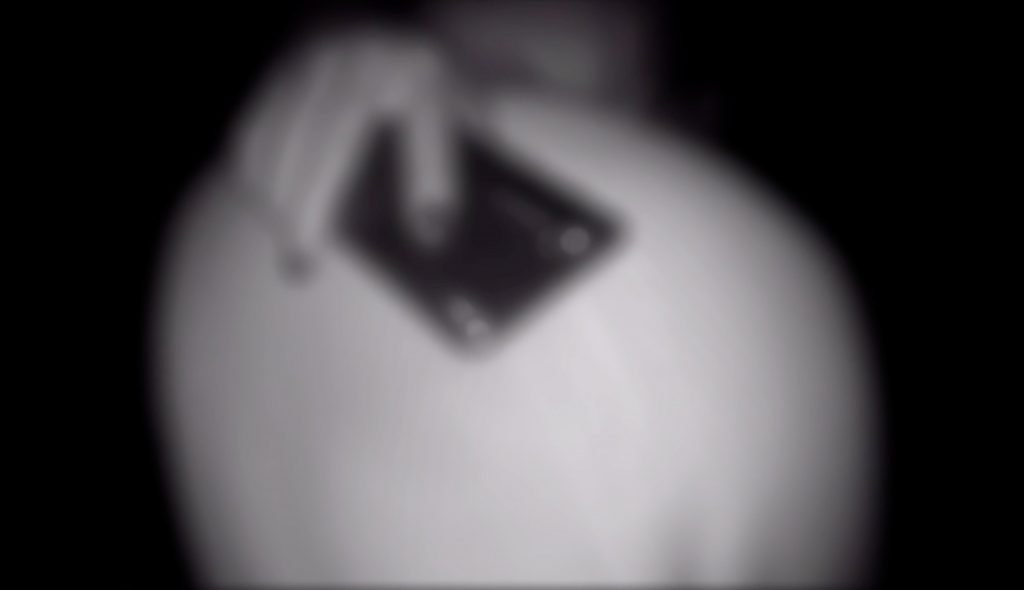
Through night-vision sensors, a scene in a dimly lit club is transformed into something obscure, as a voice confidently describes perspectives on the allocation of capital and distribution of labor in the global financial system. This understanding of capitalism triggers emotions that are a mixture of anxiety and excitement. In the second half of the film, a long take focuses on two people dancing to sentimental pop music, as their two bodies gently meld. In that moment, have they temporarily forgotten the coldness and brutality of this fetishistic world, or are they actively looking into the next speculative business?
In this part of the film, the bodies, faces, and dancefloor become greyish fluid, and the images, like the currencies described by the dancers, can be used as a medium of exchange. In a scene, the dancers’ faces are replaced with deepfakes; gender, age, and ethnicity are not fixed. “You can always get what you want.” Here, thinking about finance and physical transactions—which are two sides of the same coin—compose a song that rails against the regime of desire in the pharmacopornographic era.
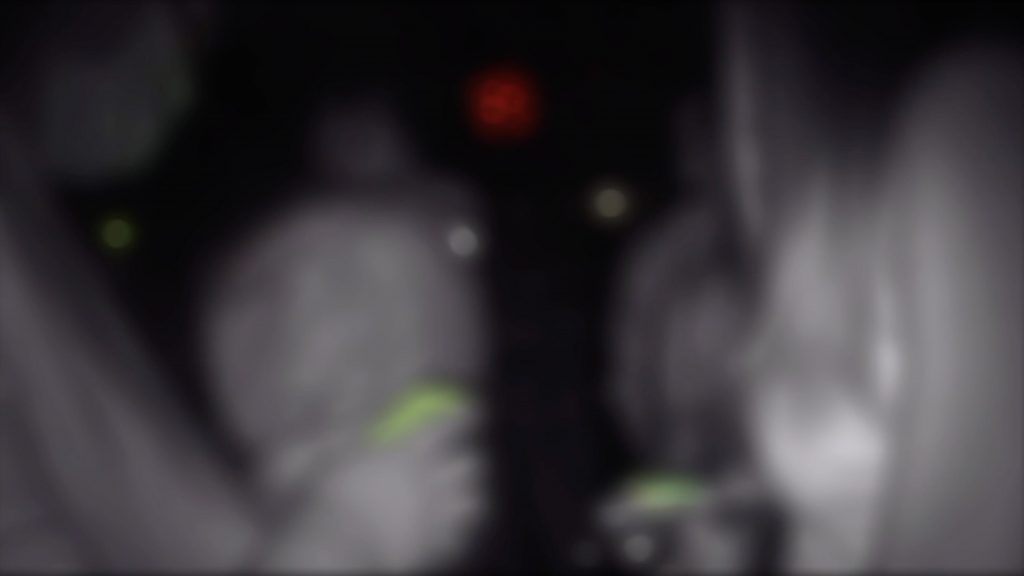
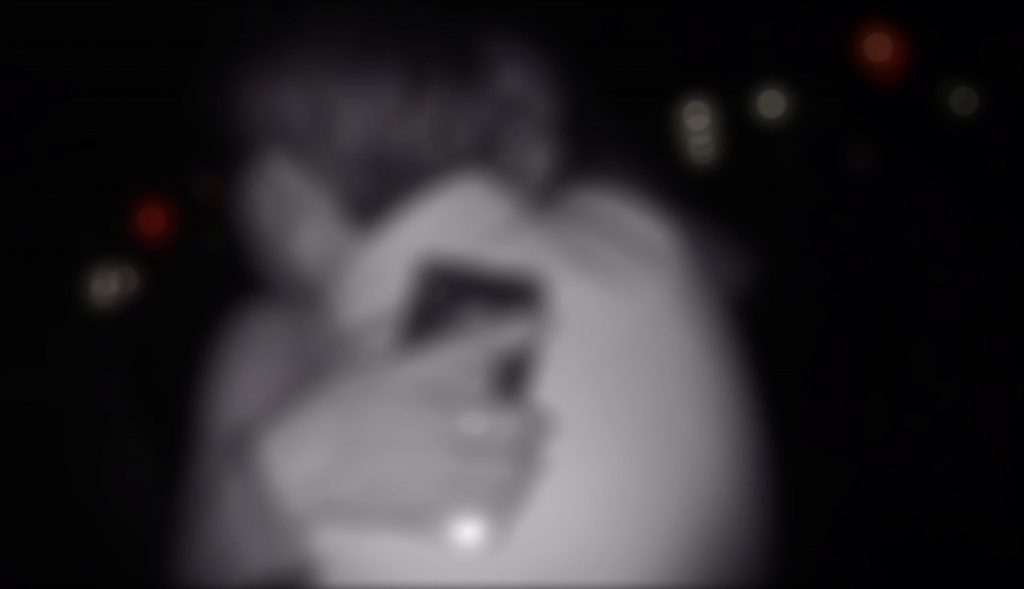
昏暗的舞厅场景经过夜视仪的转码变得模糊不清,一个声音正侃侃而谈有关全球金融体系中的分工、分配的看法,对于资本的理解似乎引发出阵阵焦虑和兴奋夹杂的情绪。在影像的后半段,长镜头聚焦在两个伴随着抒情流行乐跳舞的人,两具身体正温柔地互相交融——此刻,他们是暂时忘怀了这个拜物世界的冰冷残酷,还是在更加积极鲜活地酝酿下一段投机生意?
无论身体、面孔还是舞池,在这段影像中都变成了灰白的流体,图像在此如同舞者口中描述的货币一样,都是可以用来交换的中介。在一个镜头中,舞者的脸庞不断重复着被AI换脸替换的过程,性别、年龄、族群皆不固定。“你可以拥有你想拥有的。”思考金融与身体交易的一体两面,便是在药物色情时代书写一首直击欲望体制的歌曲。
